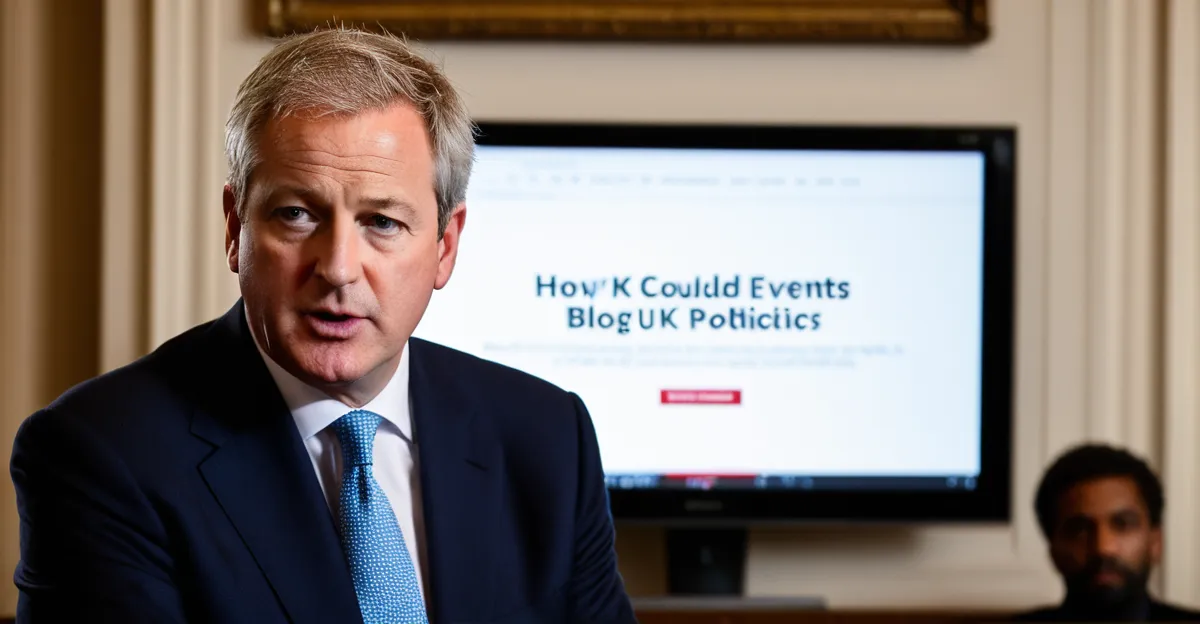Recent Major Events Shaping the UK Political Landscape
Recent UK political events have been dominated by significant economic challenges, prominently including rising inflation and a persistent cost-of-living crisis. Inflation rates have hit multi-decade highs, sharply increasing household expenses and pressuring government policy responses. This economic strain intensifies debates within party politics about the best fiscal and social measures to support citizens, influencing political narratives and voter priorities.
The impact of general elections and by-elections remains crucial in altering party dynamics. Recent major UK news highlights shifts in parliamentary seats that reflect changing voter sentiment, often driven by economic conditions and public perception of government effectiveness. Such electoral outcomes have forced parties to rethink strategies and address emerging concerns more proactively.
Topic to read : What Are the Most Unbelievable Events in Recent UK News?
High-profile political scandals have also significantly shaped public trust and party strategies. These scandals have eroded confidence in some party leaders and prompted calls for greater transparency and accountability. Consequently, parties have had to adapt quickly, revising internal practices and policy messaging to regain voter support amidst a climate of skepticism.
In sum, recent UK political events converge around economic pressures, electoral shifts, and accountability challenges, collectively defining the current landscape and influencing future political debates.
This might interest you : What measures is the UK implementing to tackle climate change?
Influence of Global Affairs on Domestic Policy
The ongoing international conflicts have significantly shaped the UK’s foreign and defence policy in recent times. The UK government has increased military cooperation with allies, reinforced commitments to NATO, and adjusted defence spending priorities to address emerging security threats. This includes a focus on cyber defence capabilities and intelligence-sharing mechanisms, reflecting the multifaceted nature of modern conflicts. The complex geopolitical landscape requires continuous policy adaptation to balance domestic interests with international responsibilities.
Brexit’s aftermath continues to influence key areas such as trade, immigration, and diplomatic relations. Trade agreements with both the EU and non-EU countries are frequently renegotiated to align with changing economic demands. Immigration policy has tightened with new systems emphasizing skills and contribution, affecting workforce availability in essential sectors. Diplomatic relations remain sensitive, as the UK seeks to establish its role independently but still cooperatively within the global community.
Moreover, global economic trends—including inflationary pressures, supply chain disruptions, and energy market volatility—have a direct effect on UK decision-making. Policymakers monitor international financial shifts and commodity prices to forecast domestic economic impacts. This vigilance helps craft responsive policies aimed at stabilizing the UK economy in an interconnected world. The combination of these global factors necessitates a nuanced approach to domestic policy that integrates external realities with national priorities.
Shifts in Party Positions and Public Opinion
Recent UK party politics demonstrate a clear trend of adaptation to shifting economic and social landscapes. Parties are recalibrating their stances to address pressing issues like inflation, public healthcare pressures, and immigration reform. For example, some parties have moved towards advocating more robust social safety nets to respond to the cost-of-living crisis, while others emphasize market-driven solutions to stimulate growth.
Public opinion trends reveal fluctuating voter priorities. Surveys indicate increased concern over healthcare quality, environmental policies, and immigration regulation. This evolving public sentiment compels parties to modify policy proposals rapidly, aiming to regain or maintain support. The dynamic nature of public opinion often results in the emergence of nuanced policy platforms that blend traditional party values with contemporary demands.
Grassroot movements and digital campaigns exert a growing influence on mainstream politics. Social media platforms enable swift dissemination of ideas and mobilize supporters around specific issues, shifting party narratives. Digital activism has pressured parties to incorporate more progressive stances on climate change and social justice, reflecting the importance of these concerns among younger voters. This interaction between public opinion and party politics creates a feedback loop, intensifying the responsiveness of political actors to societal trends.
Potential Short- and Long-Term Political Outcomes
In the wake of current events UK politics faces pivotal crossroads, with policy changes anticipated to address ongoing economic and social pressures. Governments are expected to introduce targeted measures to mitigate the cost-of-living crisis and stabilize inflation, influencing both fiscal policy and social welfare programs. Such reforms aim to restore public confidence and address voter demands highlighted in recent UK political events.
Forecasts for upcoming elections suggest fluctuating voter allegiances, driven by perceptions of government responsiveness and leadership effectiveness. By-elections and general elections will likely reflect the success or failure of current policy adaptations, potentially causing shifts in party dominance and leadership structures. Political impact analysis underscores a heightened possibility of realignment as parties compete to capture changing public priorities.
Long-term implications include an evolving political landscape marked by increased volatility but also opportunities for renewal. Parties may increasingly adopt flexible platforms, blending traditional principles with innovative policy responses to complex challenges. This dynamic promises a period of significant transformation within UK politics, shaping domestic governance and broader societal outcomes.

